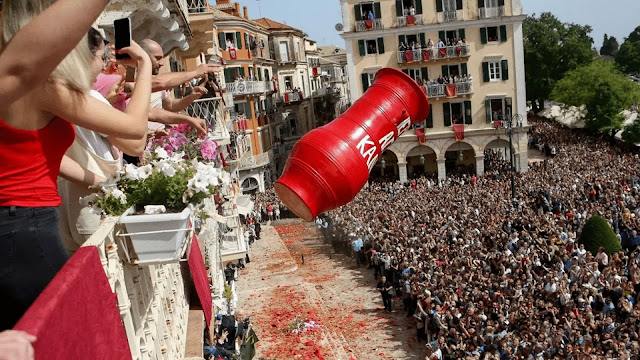By Marina Siskos Orthodox Easter evokes the closest feeling to holiness. Greek Easter (Pascha) heralds the arrival of spring, hope and the atmosphere around Greece is replete with a rejuvenated sense of joy, community and of course, festivity, celebrating the eternal victory of life over death, through experiencing death itself, just as reverberated in the Resurrection hymn: “ thanato, thanaton patisas ” ( θανάτω, θάνατον πατήσας ). Originally, Easter apparently was regarded as commemorating the Crucifixion, but the interpretation was shifted quite early to the Resurrection (Barnett, 1949). The Holy Week (Megali Evdomada) or the Week of Pathoi (the series of the sufferings and sorrows, representing the days prior to Christ’s crucifixion by the Romans in 30 A.D.) is the week prior to the Holy Easter, starting from Palm Sunday (Kyriaki ton Vayon) up to the Holy Saturday. It marks the final week of Lent, the forty-day period of fasting, prayer and penitence, and of which each day is...

